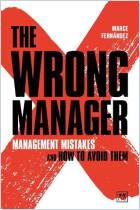
From Smart to Wise
Acting and Leading with Wisdom
ISBN: 9781118296202
Pages: 272
Recommendation
Leadership and innovation consultants Prasad Kaipa and Navi Radjou present a method that can add depth and dimension to your leadership capabilities in six areas. They explain the differences between “functional-smart” leaders who operate in the “blue zone” and “business-smart” leaders who operate in the “red zone.” Noting that each type has its strengths and limitations, Kaipa and Radjou explain why neither compares to the wise leader who embodies the best of both, and then some. Their manual includes a self-assessment test, a guided program for embarking on your journey toward wise leadership and examples of leaders who personify wisdom. While noting that many of their concepts are tried-and-true, getAbstract humbly suggests that this concise, highly motivational book might help you find the wisdom you seek.
Summary
About the Authors
CEO adviser Prasad Kaipa is the founding executive director of the Center for Leadership, Innovation and Change at the Indian School of Business. Navi Radjou is a World Economic Forum faculty member and co-author of Jugaad Innovation.


















Comment on this summary